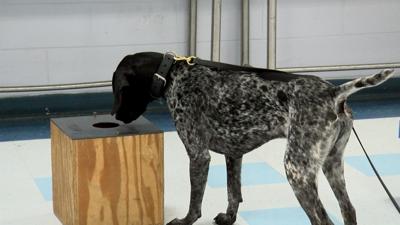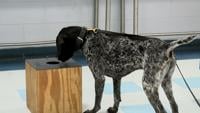DOVER, DE- The Delaware Department of Correction is shifting its K9 program away from traditional patrol work and focusing entirely on detecting drugs, electronics, and other contraband inside state correctional facilities.
Five new dogs — Boone, Radar, Ricky, Rico, and Gunner — are the latest additions to the team, participating in an intensive 12-week training program as part of the department's new canine transition initiative.
Michael Merson, Warden of Special Operations, says the state's 28 K-9 units have traditionally included both patrol and detection dogs.
"Historically, the K-9 program for the entire state of Delaware, Department of Corrections has had a blend of both single-purpose detection dogs and patrol dogs," Merson said.
That model is now changing as the department responds to a troubling rise in contraband incidents — both in Delaware and nationwide.
Greg Dean, the Statewide K-9 Supervisor, says the department has seen a clear increase in the smuggling of illegal items into prisons.
"There's been an uptick of drug-related incidents in the facilities, not just here, but nationwide… so, a part of that evolution is changing the tactics."
Dean added that incarcerated individuals are using more sophisticated methods to sneak in banned items, taking advantage of modern technology.
"They have become very creative with how they utilize social media to communicate with the outside world. Electronics and, they get creative with the substances that they're using."
In response to these challenges, the department is turning to its newest recruits to help sniff out hard-to-detect contraband, including cell phones, flash drives, and synthetic drugs.
The five dogs are currently six weeks into their training, which begins with scent walls and detection boxes.
By the end of the 12-week course, they'll be ready to work inside real prison environments, including entry points, housing units, and individual cells.
Merson says the shift is a necessary step toward improving safety in Delaware's correctional facilities.
"If we can keep this type of contraband out of our facilities, I think it makes us as a state a lot safer."
Officials say they plan to phase out patrol dogs gradually, and all new dogs brought into the program will be trained exclusively for detection work — part of what the department calls a necessary evolution to address ongoing threats inside prison walls.



